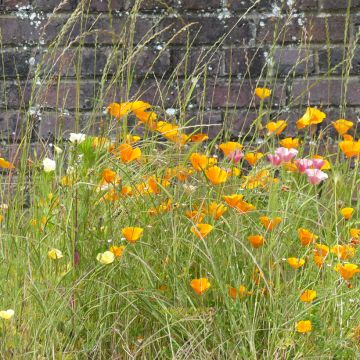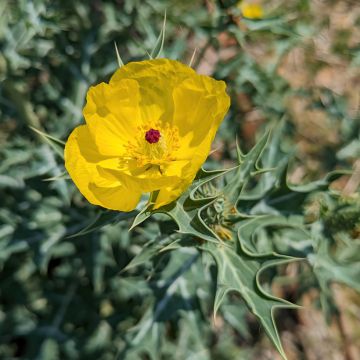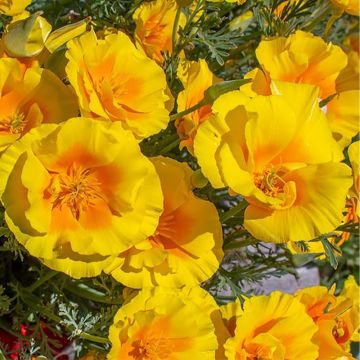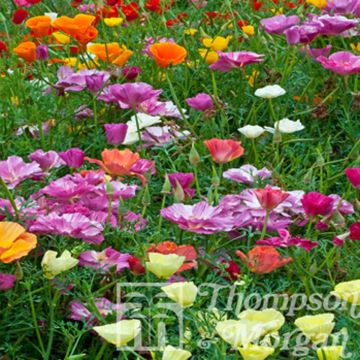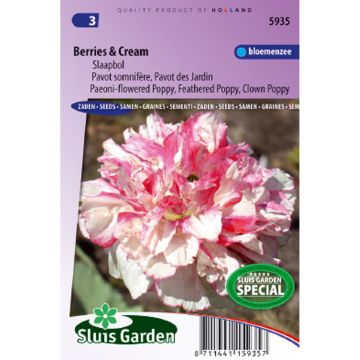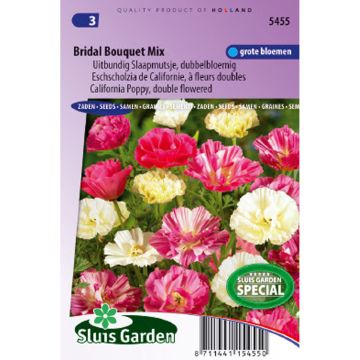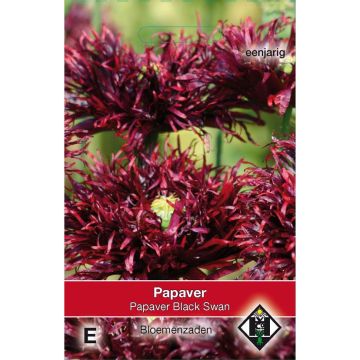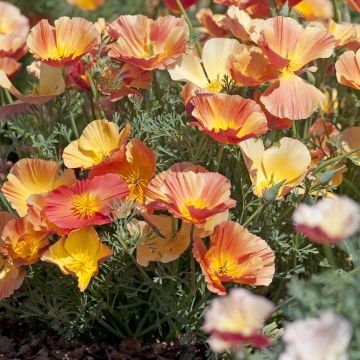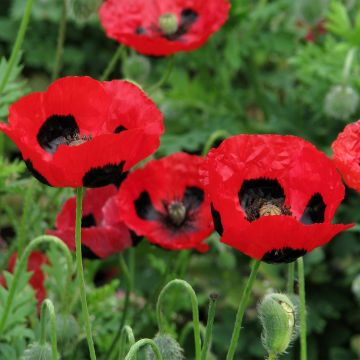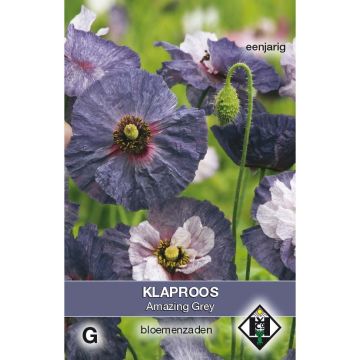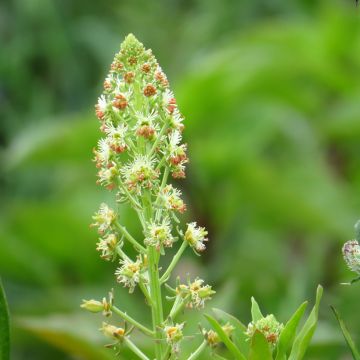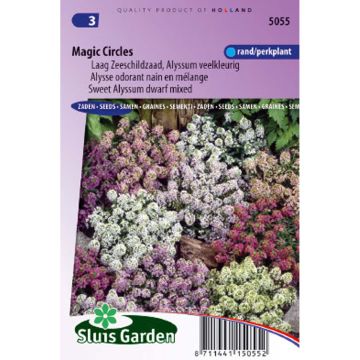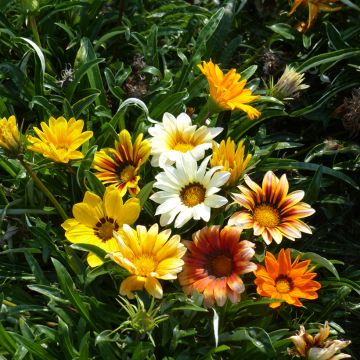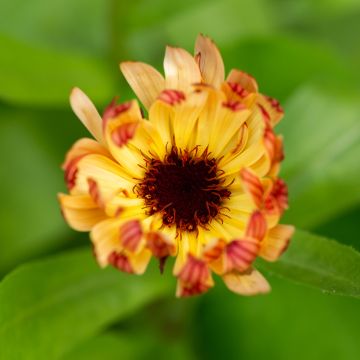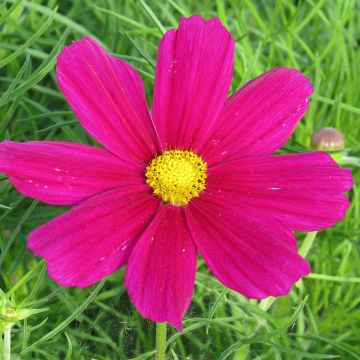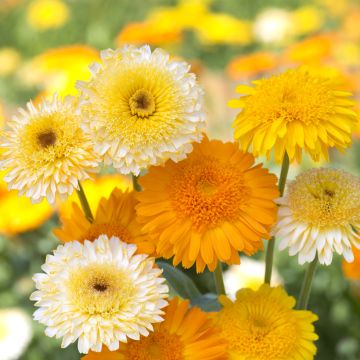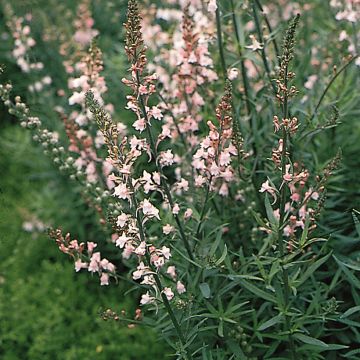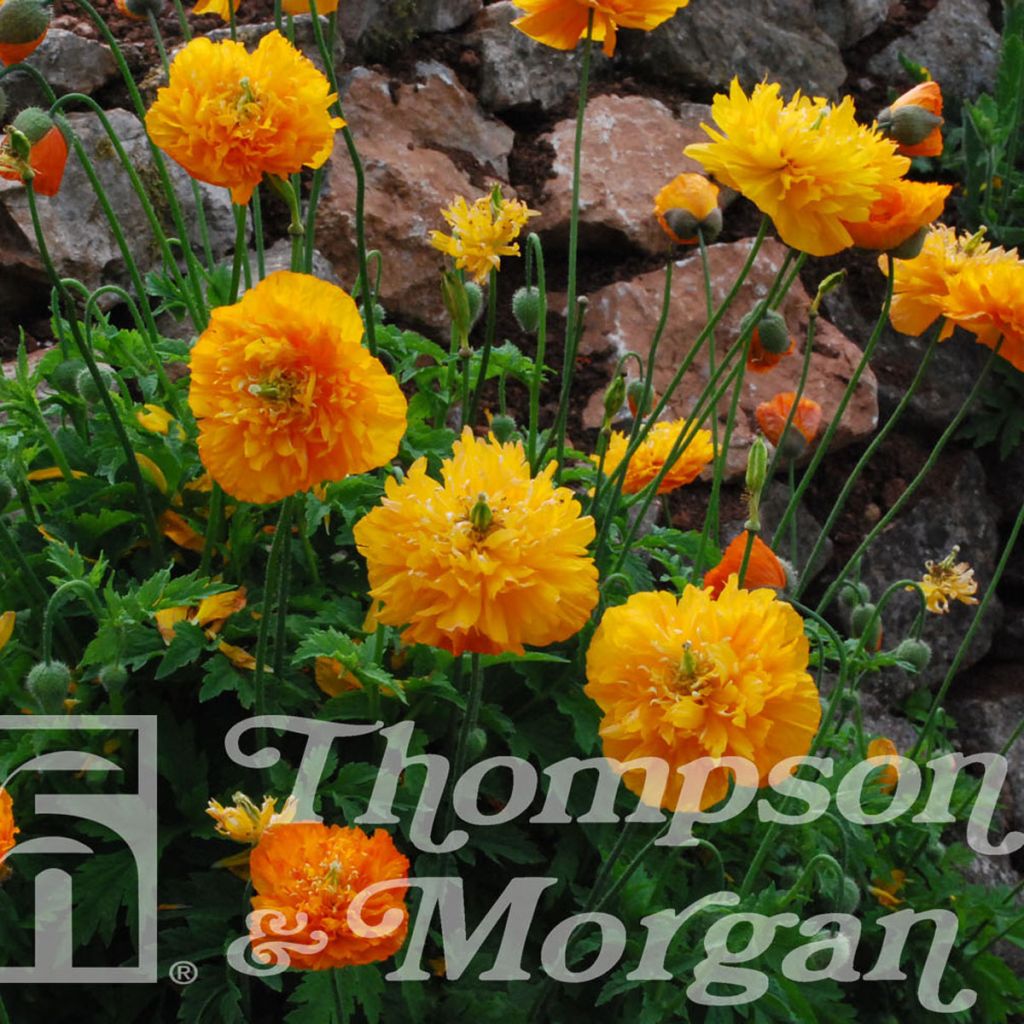

Pavot cambrica Double Mixed - Meconopsis cambrica double
Meconopsis cambrica Double Mixed - Blue Poppy
Meconopsis cambrica Double Mixed
Welsh Poppy
they did not shoot
daniel P., 06/09/2017
Why not try an alternative variety in stock?
View all →This plant carries a 6 months recovery warranty
More information
We guarantee the quality of our plants for a full growing cycle, and will replace at our expense any plant that fails to recover under normal climatic and planting conditions.
Seed-only orders are dispatched by sealed envelope. The delivery charge for seed-only orders is €3.90.

Does this plant fit my garden?
Set up your Plantfit profile →
Description
We offer an exclusive and rare mix of Welsh Poppies, also known as Meconopsis cambrica Double Mixed, with silky yellow, orange, and red pompon flowers. This perennial is a sturdy and hardy plant, displaying beautiful, dark green, and dissected foliage. This novelty is truly captivating and will brighten up semi-shaded borders from spring to autumn. Occasionally, a strange flower appears in the sowing, as if from another place.
Meconopsis cambrica belongs to the Papaveraceae family. It is a species native to western Europe, specifically the Atlantic coast, and regions around the Bay of Biscay, Wales, and Ireland. It is also found in France, in the Pyrenees, in damp woodlands. 'Double Mixed' is a selection of double-flowered plants with very cheerful colours. It is a perennial plant that forms a taproot from which a small, more or less dense tuft of deeply cut, dark green, hairy leaves emerges at the collar. The plant reaches a height of 40cm (16in) when in flower and has a diameter of 30cm (12in). The flowering period is impressive. It blooms from May until October, or even November if there is no frost, when the trees are red and lose their leaves. The poppy-like double flowers come in colours ranging from golden yellow to bright red, with a silky texture that reflects light well. They are carried by long, slender peduncles. They measure 3 to 5cm (1 to 2in) in diameter. The basal leaves are compound, elliptical to pinnatisect, deep green on the upper surface, bluish on the underside, and pubescent. They measure 10 to 20cm (4 to 8in) long. The upper leaves are similar but have shorter petioles. The fruit is a glabrous capsule that contains a large number of small black seeds.
In this 'Double Mix' selection, Meconopsis cambrica equals the originality and delicate beauty of the larger poppies. These flowers prove to be bright and tender in semi-shaded borders, where this species usually thrives. Its light appearance makes it easy to associate with other plants in country borders. Difficult to maintain in continuous masses in a border, it will be best to let it emerge wherever it pleases, amidst ferns, among heucheras, bleeding hearts, or lungworts in a woodland scene. It also has a nice effect in a rockery, far from fragile alpine plants, mixed with spring bulbs (Ipheion uniflorum, Scilla biflora), with summer-flowering ground cover perennials such as Campanula portenschlagiana or Geranium cinereum, with other low plants with late bloom such as Ceratostigma plumbaginoides, with cerulean blue flowers on its reddening leaves, or even with low conifers such as Juniperus horizontalis 'Blue Chips'.
The origin of the name of this plant is not surprising: Meconopsis comes from the Greek Mècaun, which means "poppy," and opsis, "appearance," alluding to its strong resemblance to poppies of the genus Papaver.
Report an error about the product description
Flowering
Foliage
Plant habit
Botanical data
Meconopsis
cambrica
Double Mixed
Papaveraceae
Welsh Poppy
Cultivar or hybrid
Other Poppy seeds
Planting and care
Sow the 'Double Mix' poppy seeds immediately upon receipt. Sow on the surface of light and moist compost in pots or trays, and cover them with a thin layer of compost or vermiculite. Enclose the pots in a polythene bag and keep at a temperature between 15 to 20°C (59 to 68°F), or place them outside in a sheltered position. The seeds should be exposed to light, which promotes germination. Keep the surface of the compost moist but not waterlogged. Germination can take 1 to 3 months and may be irregular.
When the plants are manageable, transplant them into 7.5cm (3in) diameter pots or trays. Plant them outside, spacing them 30cm (12in) apart, once they are well established.
Meconopsis cambrica prefers full shade or partial shade. It appreciates the humid atmosphere provided by the shade of a wall or the cover of trees, in moderately dry to moist soil. Slightly acidic or humus-bearing, cool to dry, clay or loamy-clay soil yields good results. Its taproot is poorly developed and does not tolerate transplanting well. Care must be taken during transplantation not to break its fragile tissues. Plant the seedling without disturbing its roots and ensure regular watering until it takes root.
This plant has a short lifespan, but it spreads easily through the sowing of fresh seeds. Dead flowers can be removed as they appear to promote even longer flowering, while allowing some fruiting to produce seeds each year.
Sowing period
Intended location
-
, onOrder confirmed
Reply from on Promesse de fleurs
Flower seeds
Haven't found what you were looking for?
Hardiness is the lowest winter temperature a plant can endure without suffering serious damage or even dying. However, hardiness is affected by location (a sheltered area, such as a patio), protection (winter cover) and soil type (hardiness is improved by well-drained soil).

Photo Sharing Terms & Conditions
In order to encourage gardeners to interact and share their experiences, Promesse de fleurs offers various media enabling content to be uploaded onto its Site - in particular via the ‘Photo sharing’ module.
The User agrees to refrain from:
- Posting any content that is illegal, prejudicial, insulting, racist, inciteful to hatred, revisionist, contrary to public decency, that infringes on privacy or on the privacy rights of third parties, in particular the publicity rights of persons and goods, intellectual property rights, or the right to privacy.
- Submitting content on behalf of a third party;
- Impersonate the identity of a third party and/or publish any personal information about a third party;
In general, the User undertakes to refrain from any unethical behaviour.
All Content (in particular text, comments, files, images, photos, videos, creative works, etc.), which may be subject to property or intellectual property rights, image or other private rights, shall remain the property of the User, subject to the limited rights granted by the terms of the licence granted by Promesse de fleurs as stated below. Users are at liberty to publish or not to publish such Content on the Site, notably via the ‘Photo Sharing’ facility, and accept that this Content shall be made public and freely accessible, notably on the Internet.
Users further acknowledge, undertake to have ,and guarantee that they hold all necessary rights and permissions to publish such material on the Site, in particular with regard to the legislation in force pertaining to any privacy, property, intellectual property, image, or contractual rights, or rights of any other nature. By publishing such Content on the Site, Users acknowledge accepting full liability as publishers of the Content within the meaning of the law, and grant Promesse de fleurs, free of charge, an inclusive, worldwide licence for the said Content for the entire duration of its publication, including all reproduction, representation, up/downloading, displaying, performing, transmission, and storage rights.
Users also grant permission for their name to be linked to the Content and accept that this link may not always be made available.
By engaging in posting material, Users consent to their Content becoming automatically accessible on the Internet, in particular on other sites and/or blogs and/or web pages of the Promesse de fleurs site, including in particular social pages and the Promesse de fleurs catalogue.
Users may secure the removal of entrusted content free of charge by issuing a simple request via our contact form.
The flowering period indicated on our website applies to countries and regions located in USDA zone 8 (France, the United Kingdom, Ireland, the Netherlands, etc.)
It will vary according to where you live:
- In zones 9 to 10 (Italy, Spain, Greece, etc.), flowering will occur about 2 to 4 weeks earlier.
- In zones 6 to 7 (Germany, Poland, Slovenia, and lower mountainous regions), flowering will be delayed by 2 to 3 weeks.
- In zone 5 (Central Europe, Scandinavia), blooming will be delayed by 3 to 5 weeks.
In temperate climates, pruning of spring-flowering shrubs (forsythia, spireas, etc.) should be done just after flowering.
Pruning of summer-flowering shrubs (Indian Lilac, Perovskia, etc.) can be done in winter or spring.
In cold regions as well as with frost-sensitive plants, avoid pruning too early when severe frosts may still occur.
The planting period indicated on our website applies to countries and regions located in USDA zone 8 (France, United Kingdom, Ireland, Netherlands).
It will vary according to where you live:
- In Mediterranean zones (Marseille, Madrid, Milan, etc.), autumn and winter are the best planting periods.
- In continental zones (Strasbourg, Munich, Vienna, etc.), delay planting by 2 to 3 weeks in spring and bring it forward by 2 to 4 weeks in autumn.
- In mountainous regions (the Alps, Pyrenees, Carpathians, etc.), it is best to plant in late spring (May-June) or late summer (August-September).
The harvesting period indicated on our website applies to countries and regions in USDA zone 8 (France, England, Ireland, the Netherlands).
In colder areas (Scandinavia, Poland, Austria...) fruit and vegetable harvests are likely to be delayed by 3-4 weeks.
In warmer areas (Italy, Spain, Greece, etc.), harvesting will probably take place earlier, depending on weather conditions.
The sowing periods indicated on our website apply to countries and regions within USDA Zone 8 (France, UK, Ireland, Netherlands).
In colder areas (Scandinavia, Poland, Austria...), delay any outdoor sowing by 3-4 weeks, or sow under glass.
In warmer climes (Italy, Spain, Greece, etc.), bring outdoor sowing forward by a few weeks.

































